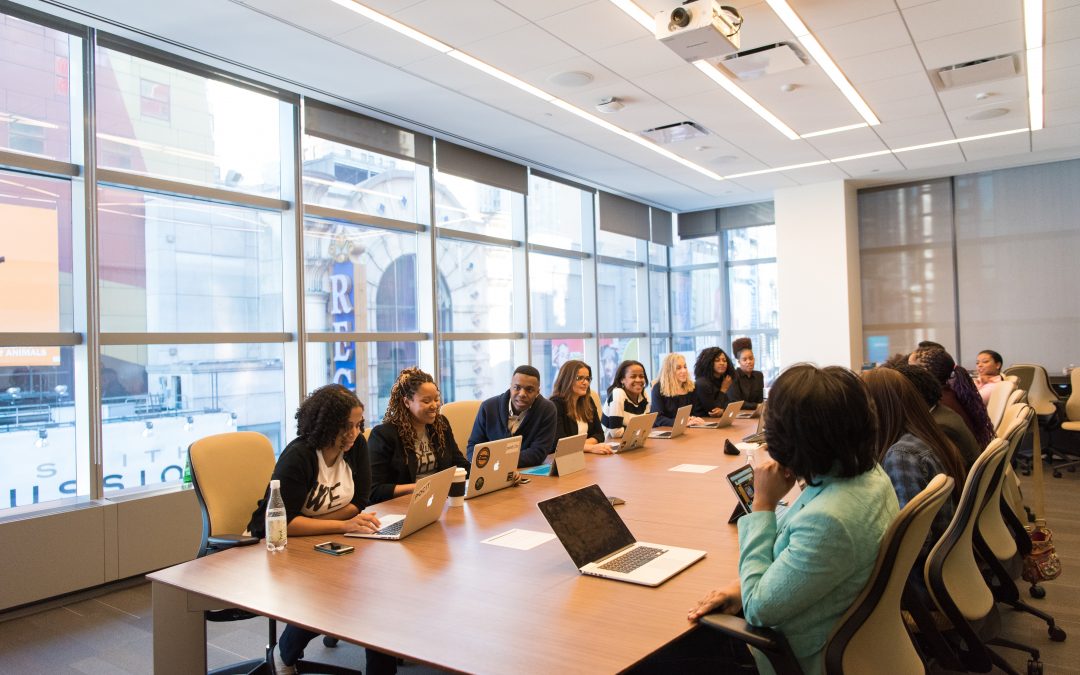
Happy Holidays
Just a quick note to wish all of you a happy, restful, and peaceful holidays, however and whoever you spend it with. Take care, folks, and I look forward to seeing you in 2015!
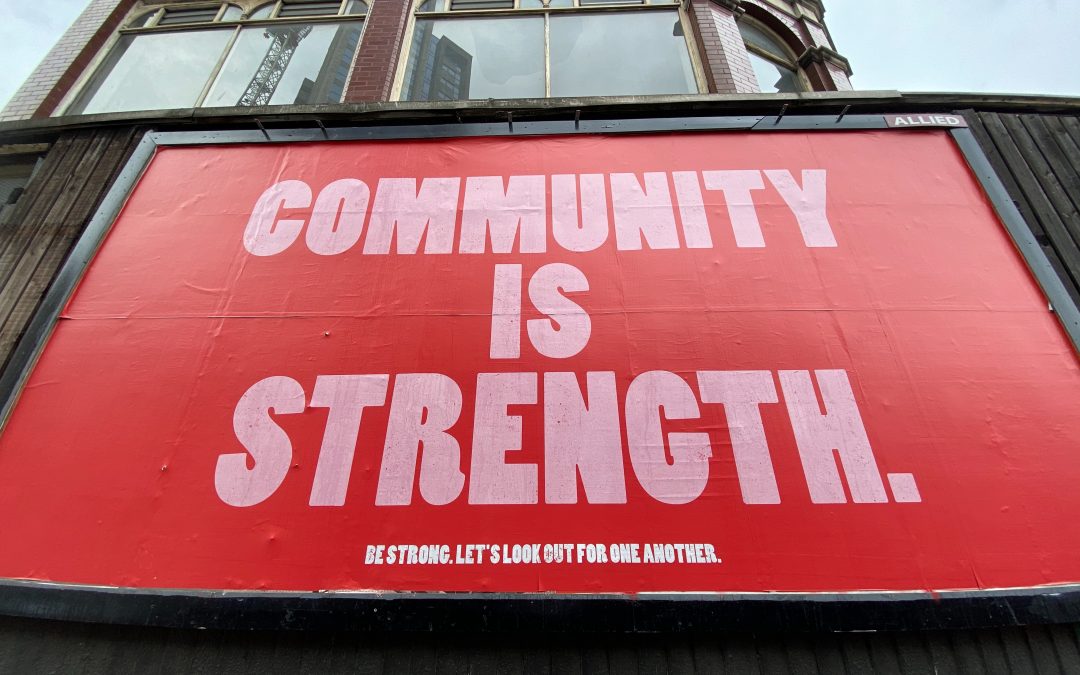
The Impact of One Person
I am 35 years old and *people* never cease to surprise me. My trip home from Los Angeles today was a good example of this.
It was a tortuous affair that should have been a quick hop from LA to Oakland, popping on BArt, and then getting home for a cup of tea and an episode of *The Daily Show*.
It didn’t work out like that.
My flight was delayed. Then we sat on the tarmac for an hour. Then the new AirBart train was delayed. Then I was delayed at the BArt station in Oakland for 30 minutes. Throughout this I was tired, it was raining, and my patience was wearing thin.
Through the duration of this chain of minor annoyances, I was reading about the horrifying school attack in Pakistan. As I read more, related articles were linked with other stories of violence, aggression, and rape, perpetuated by the dregs of our species.
As anyone who knows me will likely testify, I am a generally pretty positive guy who sees the good in *people*. I have baked my entire philosophy in life and focus in my career upon the core belief that people are *good* and the solutions to our problems and the doors to opportunity are created by *good people*.
On some days though, even the strongest sense of belief in people can be tested when reading about events such as this dreadful act of violence in Pakistan. My seemingly normal trip home from the office in LA just left me *disappointed* in people.
While stood at the BArt station I decided I had had enough and called an Uber. I just wanted to get home and see my family. This is when my mood changed entirely.
# Gerald
A few minutes later, my Uber arrived, and I was picked up by an older gentleman called *Gerald*. He put my suitcase in the trunk of his car and off we went.
We started talking about the Pakistan shooting. We both shared a desperate sense of disbelief at all those innocent children slaughtered. We questioned how anyone with any sense of humanity and emotion could even think about doing that, let alone going through with it. With a somber air filling the car, Gerald switched gears and started talking about his family.
He told me about his two kids, both of which are in their mid-thirtees. He doted on their accomplishments in their careers, their sense of balance and integrity as people, and his three beautiful grand-children.
He proudly shared that he had shipped his grandkids’ Christmas presents off to them today (they are on the East Coast) so he didn’t miss the big day. He was excited about the joy he hoped the gifts would bring to them. His tone and sentiment was one of happiness and pride.
We exchanged stories about our families, our plans for Christmas, and how lucky we both felt to love and be loved.
While we were generations apart…our age, our experiences, and our differences didn’t matter. We were just proud husbands and fathers who were cherishing the moments in life that were so important to both of us.
We arrived at my home and I told Gerald that until I stepped in his car I was having a pretty shitty trip home and he completely changed that. We shook hands, shared Christmas best wishes, and parted ways.
# Good People
What I was expecting to be a typical Uber ride home with me exchanging a few pleasantries and then doing email on my phone, instead really illuminated what is important in life.
We live in complex world. We live on a planet with a rich tapestry of people and perspectives.
Evil people *do* exist. I am not referring to a specific religious or spiritual definition of evil, but instead the extreme inverse of the good we see in others.
There are people who can hurt others, who can so violently shatter innocence and bring pain to hundreds, so brutally, and so unnecessarily. I can’t even imagine what the parents of those kids are going through right now.
It can be easy to focus on these tragedies and to think that our world is getting worse; to look at the full gamut of negative humanity, from the inconsequential, such as the miserable lady yelling at the staff at the airport, to the hateful, such as the violence directed at innocent children. It is easy to assume that our species is rotting from the inside out, to see poison in the well, and that the rot is spreading.
While it is easy to lose faith in people, I believe our wider humanity keeps us on the right path.
While there is evil in the world, there is an abundance of *good*. For every evil person screaming there is a choir of good people who drown them out. These good people create good things, they create beautiful things that help others to also create good things and be good people too.
Like many of you, I am fortunate to see many of these things every day. I see people helping the elderly in their local communities, many donating toys to orphaned kids over the holidays, others creating technology and educational resources that help people to create new content, art, music, businesses, and more. Every day millions devote hours to helping and inspiring others to create a brighter future.
What is most important about all of this is that every individual, every person, every one of you reading this, has the opportunity to have this impact. These opportunities may be small and localized, or they may be large and international, but we can all leave this planet a little better than when we arrived on it.
The simplest way of doing this is to share our humanity with others and to cherish the good in the face of evil. The louder our choir, the weaker theirs.
Gerald did exactly that tonight. He shared happiness and opportunity with a random guy he picked up in his car and I felt I should pass that spirit on to you folks too. Now it is your turn.
Thanks for reading.

Feedback Requested: Great Examples of Community
Folks, I need to ask for some help.
Like many, I have some go-to examples of great communities. This includes Wikipedia, OpenStreetmap, Ubuntu, Debian, Linux, and others. Many of these are software related, many of them are Open Source.
I would like to ask your feedback for other examples of great communities. These don’t have to be software-related…in fact I would love to see examples of great communities in other areas and disciplines.
They could be collaborative communities, communities that share a common interest, communities that process big chunks of data, communities that inspire and educate certain groups (e.g. kids, under-privilaged), or anything else.
I am looking for inspiring examples that get to the heart of what makes communities *beautiful*. These don’t have to be huge and elaborate communities, they just need to demonstrate the power of people sharing a mission or ethos and doing interesting things.
Please share your examples in the comments, and in doing so, please share the following:
* The name of the community
* A web address / contact person
* Overview of the community, what it does, and why you feel it is special
Thanks!
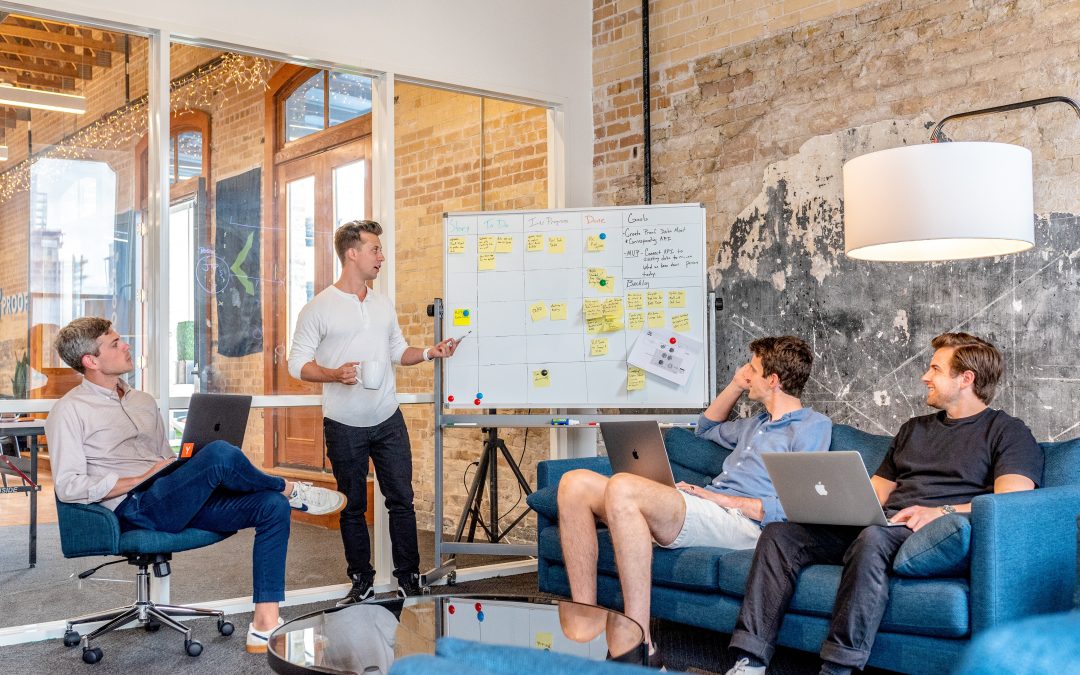
Ubuntu Governance Reboot: Five Proposals
Sorry, this is *long*, but hang in there.
A little while back I wrote [a blog post](https://archivedblog.jonobacon.com/2014/11/14/ubuntu-governance-reboot/) that seemed to inspire some people and ruffle the feathers of some others. It was designed as a conversation-starter for how we can re-energize leadership in Ubuntu.
When I kicked off the blog post, Elizabeth quite rightly gave me a bit of a kick in the spuds about not providing a place to have a discussion, so I amended the blog post to a link to [this thread](https://lists.ubuntu.com/archives/ubuntu-community-team/2014-November/000059.html) where I encourage your feedback and participation.
Rather unsurprisingly, there was some good feedback, before much of it started wandering off the point a little bit.
I was delighted to see that Laura posted that a [Community Council meeting on the 4th Dec at 5pm UTC](https://wiki.ubuntu.com/CommunityCouncilAgenda) has been set up to further discuss the topic. Thanks, CC, for taking the time to evaluate and discuss the topic in-hand.
I plan on joining the meeting, but I wanted to post five proposed recommendations that we can think about. Again, please feel free to share feedback about these ideas on [the mailing list](https://lists.ubuntu.com/mailman/listinfo/Ubuntu-community-team)
## 1. Create our Governance Mission/Charter
I spent a bit of time trying to find the charter or mission statements for the Community Council and Technical Board and I couldn’t find anything. I suspect they are not formally documented as they were put together back in the early days, but other sub-councils have crisp charters (mostly based off the first sub-council, the [Forum Council](https://wiki.ubuntu.com/ForumsGovernance)).
I think it could be interesting to define a crisp mission statement for Ubuntu governance. What is our governance here to do? What are the primary areas of opportunity? What are the priorities? What are the risks we want to avoid? Do we need both a CC and TB?
We already have the answers to some of these questions, but are the answers we have the right ones? Is there an opportunity to adjust our goals with our leadership and governance in the project?
Like many of the best mission statements, this should be a *collaborative* process. Not a mission defined by a single person or group, but an opportunity for multiple people to feed into so it feels like a *shared* mission. I would recommend that this be a process that all Ubuntu members can play a role in. Ubuntu members have earned their seat at the table via their contributions, and would be a wonderfully diverse group to pull ideas from.
This would give us a mission that feels shared, and feels representative of our community and culture. It would feel current and relevant, and help guide our governance and wider project forward.
## 2. Create an ‘Impact Constitution’
OK, I just made that term up, and yes, it sounds a bit buzzwordy, but let me explain.
The guiding principles in Ubuntu are the [Ubuntu Promise](https://www.ubuntu.com/about/). It puts in place a set of commitments that ensure Ubuntu always remains a collaborative Open Source project.
What we are missing though is a document that outlines the *impact* that Ubuntu gives you, others, and the wider world…the ways in which Ubuntu empowers us all to succeed, to create opportunity in our own lives and the life of others.
As an example:
> Ubuntu is a Free Software platform and community. Our project is designed to create open technology that empowers individuals, groups, businesses, charities, and others. Ubuntu breaks down the digital divide, and brings together our collective energy into a system that is useful, practical, simple, and accessible.
>
>Ubuntu empowers you to:
>
> 1. Deploy an entirely free Operating System and archive of software to one of multiple computers in homes, offices, classrooms, government institutions, charities, and elsewhere.
> 2. Learn a variety of programming and development languages and have the tools to design, create, test, and deploy software across desktops, phones, tablets, the cloud, the web, embedded devices and more.
> 3. Have the tools for artistic creativity and expression in music, video, graphics, writing, and more.
> 4. . . .
Imagine if we had a document with 20 or so of these impact statements that crisply show the power of our collective work. I think this will regularly remind us of the value of Ubuntu and provide a set of benefits that we as a wider community will seek to protect and improve.
I would then suggest that part of the governance charter of Ubuntu is that our leadership are there to inspire, empower, and protect the ‘impact constitution’; this then directly connects our governance and leadership to what we consider to be the primary practical impact of Ubuntu in making the world a better place.
## 3. Cross-Governance Strategic Meetings
Today we have CC meetings, TB meetings, FC meetings etc. I think it would be useful to have a monthly, or even quarterly meeting that brings together key representatives from each of the governance boards with a single specific goal – how do the different boards help further each other’s mission. As an example, how does the CC empower the TB for success? How does the TB empower the FC for success?
We don’t want governance that is either independent or dependent at the individual board level. We want governance that is *inter-dependent* with each other. This then creates a more connected network of leadership.
## 4. Annual In-Person Governance Summit
We have a [community donations fund](https://community.ubuntu.com/help-information/funding/). I believe we should utilize it to get together key representatives across Ubuntu governance into the same room for two or three days to discuss (a) how to refine and optimize process, but also (b) how to further the impact of our ‘impact constitution’ and inspire wider opportunity in Ubuntu.
If Canonical could chip in and potentially there were a few sponsors, we could potentially bring *all* governance representatives together.
Now, it could be tempting to suggest we do this online. I think this would be a mistake. We want to get our leaders together to work together, socialize together, and bond together. The benefits of doing this in person significantly outweigh doing it online.
## 5. Optimize our community brand around “innovation”
Ubuntu has a good reputation for innovation. Desktop, Mobile, Tablet, Cloud…it is all systems go. Much of this innovation though is seen in the community as something that Canonical fosters and drives. There was a sentiment in the discussion after my last blog post that some folks feel that Canonical is in the driving seat of Ubuntu these days and there isn’t much the community can do to inspire and innovate. There was at times a jaded feeling that Canonical is standing in the way of our community doing great things.
I think this is a bit of an excuse. Yes, Canonical are primarily driving some key pieces…Unity, Mir, Juju for example…but there is nothing stopping *anyone* innovating in Ubuntu. Our archives are open, we have a multitude of toolsets people can use, we have extensive collaborative infrastructure, and an awesome community. Our flavors are a wonderful example of much of this innovation that is going on. There is significantly more in Ubuntu that is open than restricted.
As such, I think it could be useful to focus on this in our outgoing Ubuntu messaging and advocacy. As our ‘impact constitution’ could show, Ubuntu is a hotbed of innovation, and we could create some materials, messaging, taglines, imagery, videos, and more that inspires people to join a community that is doing cool new stuff.
This could be a great opportunity for designers and artists to participate, and I am sure the Canonical design team would be happy to provide some input too.
Imagine a world in which we see a constant stream of social media, blog posts, videos and more all thematically orientated around how Ubuntu is where the innovators innovate.
## Bonus: Network of Ubucons
OK, this is a small extra one I would like to throw in for good measure. 🙂
The in-person Ubuntu Developer Summits were a phenomenal experience for so many people, myself included. While the [Ubuntu Online Summit](https://summit.ubuntu.com/) is an excellent, well-organized online event, there is something to be said about in-person events.
I think there is a great opportunity for us to define two UbuCons that become the primary in-person events where people meet other Ubuntu folks. One would be focused on the US, and one of Europe, and if we could get more (such as an Asian event), that would be awesome.
These would be driven by the community for the community. Again, I am sure the donations fund could help with the running costs.
In fact, before I left Canonical, this is something I started working on with the always-excellent Richard Gaskin who puts on the UbuCon before SCALE in LA each year.
This would be more than a LoCo Team meeting. It would be a formal Ubuntu event before another conference that brings together speakers, panel sessions, and more. It would be where Ubuntu people to come to meet, share, learn, and socialize.
I think these events could be a tremendous boon for the community.
Well, that’s it. I hope this provided some food for thought for further discussion. I am keen to hear your thoughts on the mailing list!
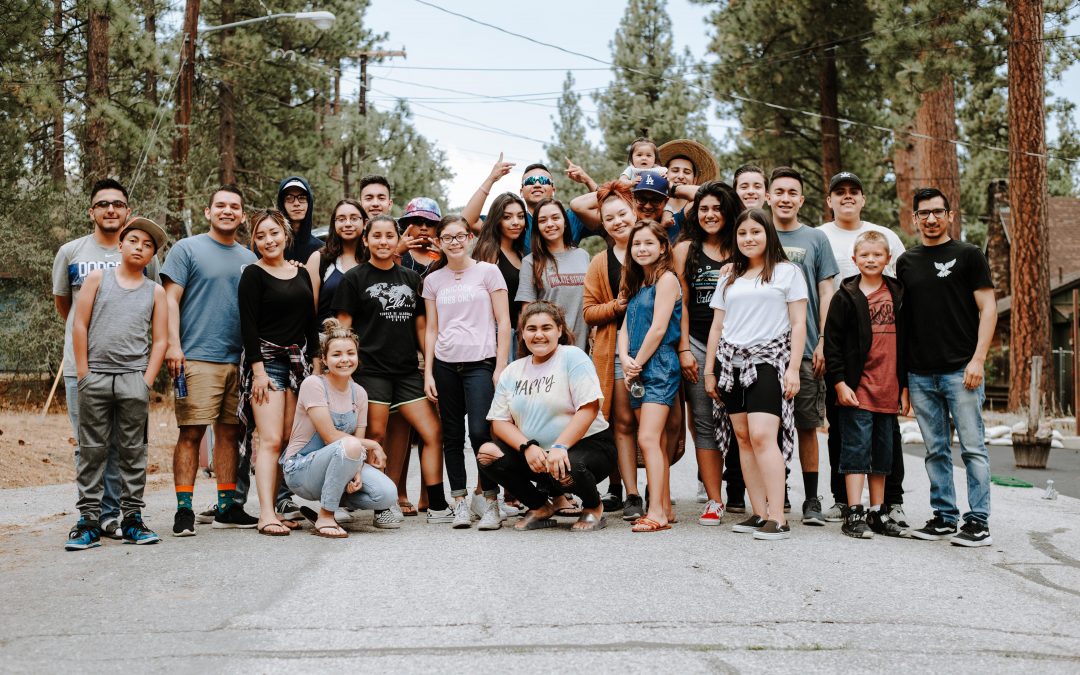
Ubuntu Governance: Reboot?
For many years Ubuntu has had a comprehensive governance structure. At the top of the tree are the Community Council (community policy) and the Technical Board (technical policy).
Below those boards are sub-councils such as the IRC, Forum, and LoCo councils, and developer assessment boards.
The vast majority of these boards are populated by predominantly non-Canonical folks. I think this is a true testament to the openness and accessibility of governance in Ubuntu. There is no “Canonical needs to have people on half the board” shenanigans…if you are a good leader in the Ubuntu community, you could be on these boards if you work hard.
So, no-one is denying the openness of these boards, and I don’t question the intentions or focus of the people who join and operate them. They are good people who act in the best interests of Ubuntu.
What I do question is the *purpose* and *effectiveness* of these boards.
Let me explain.
From my experience, the charter and role of these boards has remained largely unchanged. The Community Council, for example, is largely doing much of the same work it did back in 2006, albeit with some responsibility delegated elsewhere.
Over the years though Ubuntu has changed, not just in terms of the product, but also the community. Ubuntu is no longer just platform contributors, but there are app and charm developers, a delicate balance between Canonical and community strategic direction, and a different market and world in which we operate.
Ubuntu governance has, as a general rule, been fairly *reactive*. In other words, items are added to a governance meeting by members of the community and the boards sit, review the topic, discuss it, and in some cases vote. In this regard I consider this method of governance not really *leadership*, but instead *idea, policy, and conflict arbitration*.
What saddens me is that when I see some of these meetings, much of the discussion seems to focus on paperwork and administrivia, and many of the same topics pop up over and over again. With no offense meant at the members of these boards, these meetings are neither inspirational and rarely challenge the status quo of the community. In fact, from my experience, challenging the status quo with some of these boards has invariably been met with reluctance to explore, experiment, and try new ideas, and to instead continue to enforce and protect existing procedures. Sadly, the result of this is more bureaucracy than I feel comfortable with.
Ubuntu is at a critical point in it’s history. Just look at the opportunity: we have a convergent platform that will run across phones, tablets, desktops and elsewhere, with a powerful SDK, secure application isolation, and an incredible developer community forming. We have a stunning cloud orchestration platform that spans all the major clouds, making the ability to spin up large or small scale services a cinch. In every part of this the code is open and accessible, with a strong focus on quality.
This is *fucking awesome*.
The *opportunity* is stunning, not just for Ubuntu but also for technology freedom.
Just think of how many millions of people can be empowered with this work. Kids can educate themselves, businesses can prosper, communities can form, all on a strong, accessible base of open technology.
Ubuntu is innovating on multiple fronts, and we have one of the greatest communities in the world at the core. The passion and motivation in the community is there, but it is untapped.
Our inspirational leader has typically been Mark Shuttleworth, but he is busy flying around the world working hard to move the needle forward. He doesn’t always have the time to inspire our community on a regular basis, and it is sorely missing.
As such, we need to look to our leadership…the Community Council, the Technical Board, and the sub-councils for inspiration and leadership.
I believe we need to transform and empower these governance boards to be inspirational vessels that our wider community look to for guidance and leadership, not for paper-shuffling and administrivia.
We need these boards to not be *reactive* but to be *proactive*…to constantly observe the landscape of the Ubuntu community…the opportunities and the challenges, and to proactively capitalize on protecting the community from risk while opening up opportunity to everyone. This will make our community stronger, more empowered, and have that important dose of inspiration that is so critical to focus our family on the most important reasons why we do this: to build a world of technology freedom across the client and the cloud, underlined by a passionate community.
To achieve this will require awkward and uncomfortable change. It will require a discussion to happen to modify the charter and purpose of these boards. It will mean that some people on the current boards will *not* be the right people for the new charter.
I do though think this is important and responsible work for the Ubuntu community to be successful: if we don’t do this, I worry that the community will slowly degrade from lack of inspiration and empowerment, and our wider mission and opportunity will be harmed.
I am sure this post may offend some members of these boards, but it is not mean’t too. This is not a reflection of the current staffing, this is a reflection of the *charter* and purpose of these boards. Our current board members do excellent work with good and strong intentions, but within that *current charter*.
We need to *change* that charter though, staff appropriately, and build an inspirational network of leaders that sets everyone in this great community up for success.
This, I believe will transform Ubuntu into a new world of potential, a level of potential I have *always* passionately believed in.
**I have kicked off a [discussion on ubuntu-community-team](https://lists.ubuntu.com/archives/ubuntu-community-team/2014-November/000059.html) where we can discuss this. Please share your thoughts and solutions there!**

Dealing With Disrespect: The Video
A while back I wrote and released a free e-book called [Dealing With Disrespect](https://www.dealingwithdisrespect.com/).
It is a book that provides a short, simple to read, free guide for handling personalized, mean-spirited, disrespectful, and in some cases, malicious feedback and criticism of your work. I wrote it because this kind of feedback is increasingly common in online communities and places such as YouTube, reddit, and elsewhere, and I am tired of seeing good people give-up sharing their creative efforts because of this.
My goal with the book is that when someone reads mean-spirited feedback and criticism and feels demotivated, someone can point them to the book to it as a means of helping to put things in perspective.
Well, to make this content even easier to consume, I recorded a presentation version of it and put it up on my [YouTube channel](https://www.youtube.com/jonobacon):
*Can’t see it? Watch it [here](https://www.youtube.com/watch?v=N5zDHqrFh-M&list=UUCSOfLyd3PAGNJ8hpjytF3w)!*

Bad Voltage Turns 1

Today [Bad Voltage](https://www.badvoltage.org) celebrates our first birthday. We plan on celebrating it by having someone else blow out our birthday candles while we smash a cake and quietly defecate on ourselves.
For those of you unaware of the show, *Bad Voltage* is an Open Source, technology, and “other things we find interesting” podcast featuring Stuart Langridge (*LugRadio, Shot Of Jaq*), Bryan Lunduke (*Linux Action Show*), Jeremy Garcia (*Linux Questions*), and myself (*LugRadio, Shot Of Jaq*). The show takes fun but informed take on various topics, and includes interviews, reviews, competitions, and challenges.
Over the last year we have covered quite the plethora of topics. This has included VR, backups, atheism, ElementaryOS, guns, bitcoin, biohacking, PS4 vs. XBOX, kids and coding, crowdfunding, genetics, Open Source health, 3D printed weapons, the GPL, work/life balance, Open Source political parties, the right to be forgotten, smart-watches, equality, Mozilla, tech conferences, tech on TV, and more.
We have interviewed some awesome guests including Chris Anderson (Wired), Tim O’Reilly (O’Reilly Media), Greg Kroah-Hartman (Linux), Miguel de Icaza (Xamarin/GNOME), Stormy Peters (Mozilla), Simon Phipps (OSI), Jeff Atwood (Discourse), Emma Marshall (System76), Graham Morrison (Linux Voice), Matthew Miller (Fedora), Ilan Rabinovitch (Southern California Linux Expo), Daniel Foré (Elementary), Christian Schaller (Redhat), Matthew Garrett (Linux), Zohar Babin (Kaltura), Steven J. Vaughan-Nicols (ZDNet), and others.
…and then there are the competitions and challenges. We had a debate where we had to take the opposite viewpoints of what we think, we had a rocking poetry contest, challenged our listeners to mash up the shows to humiliate us, ran a selfie competition, and more. In many cases we punished each other when we lost and even tried to take on a sausage company.
It is all a lot of fun, and if you haven’t checked the show out, be sure to head over to [www.badvoltage.org](https://www.badvoltage.org) and load up on some shows.
One of the most awesome aspects of Bad Voltage is [our community](https://community.badvoltage.org). Our pad is at [community.badvoltage.org](https://community.badvoltage.org) and we have a fantastically diverse community of different ideas, perspectives and viewpoints. In many cases we have discussed a topic on the show and there has been a long and interesting (and always respectful debate on the forum). It is so much fun to be around.
I just want to say a huge thank-you to everyone who has supported the show and stuck with us through our first year. We have a lot of fun doing it, but the Bad Voltage community make every ounce of effort worthwhile. I also want to thank my fellow presenters, Bryan, Stuart, and Jeremy; it is a pleasure getting to shoot the proverbial with you guys every few weeks.
## Live Voltage!
Before I wrap up, I need to share an important piece of information. The Bad Voltage team will be performing our very first live show at the [Southern California Linux Expo](https://www.socallinuxexpo.org/scale13x) on the evening of Friday 20th Feb 2015 in Los Angeles.
We can’t think of a better place to do our first live show than SCALE, and we hope to see you there!

Happy Birthday Ubuntu!
Today is Ubuntu’s ten year anniversary. Scott did a [wonderful job](https://netsplit.com/happy-10th-birthday-ubuntu) summarizing many of those early years and his own experience, and while I won’t be as articulate as him, I wanted to share a few thoughts on my experience too.
I heard of this super secret Debian startup from Scott James Remnant. When I worked at OpenAdvantage we would often grab lunch in Birmingham, and he filled me in on what he was working on, but leaving a bunch of the blanks out due to confidentiality.
I was excited about this new mystery distribution. For many years I had been advocating at conferences about a consumer-facing desktop, and felt that Debian and GNOME, complete with the exciting Project Utopia work from Robert Love and David Zeuthen made sense. This was *precisely* what this new distro would be shipping.
When Warty was released I installed it and immediately became an Ubuntu user. Sure, it was simple, but the level of integration was a great step forward. More importantly though, what really struck me was how community-focused Ubuntu was. There was open governance, a Code Of Conduct, fully transparent mailing lists and IRC channels, and they had the Oceans 11 of rock-star developers involved from Debian, GNOME, and elsewhere.
I knew I wanted to be part of this.
While at GUADEC in Stuttgart I met Mark Shuttleworth and had a short meeting with him. He seemed a pretty cool guy, and I invited him to speak at our very first LugRadio Live in Wolverhampton.
Mark at LugRadio Live.
I am not sure how many multi-millionaires would consider speaking to 250 sweaty geeks in a football stadium sports bar in Wolverhampton, but Mark did it, not once, but twice. In fact, one time he took a helicopter to Wolverhampton and landed at the dog racing stadium. We had to have a debate in the LugRadio team for who had the nicest car to pick him up in. It was not me.
This second LugRadio Live appearance was memorable because two weeks previous I had emailed Mark to see if he had a spot for me at Canonical. OpenAdvantage was a three-year funded project and was wrapping up, and I was looking at other options.
Mark’s response was:
> “Well, we are opening up an Ubuntu Community Manager position, but I am not sure it is for you.”
I asked him if he could send over the job description. When I read it I knew I wanted to do it.
Fast forward four interviews, the last of which being in his kitchen (which didn’t feel awkward, at all), and I got the job.
The day I got that job was one of the greatest days of my life. I felt like I had won the lottery; working on a project with mission, meaning, and something that could grow my career and skill-set.

Canonical team in 2007
The day I got the job was not without worry though.
I was going to be working with people like Colin Watson, Scott James Remnant, Martin Pitt, Matt Zimmerman, Robert Collins, and Ben Collins. How on earth was I going to measure up?
A few months later I flew out to my first Ubuntu Developer Summit in Mountain View, California. Knowing little about California in November, I packed nothing but shorts and t-shirts. Idiot.
I will always remember the day I arrived, going to a bar with Scott and some others, meeting the team, and knowing absolutely nothing about what they were saying. It sounded like gibberish, and I felt like I was a fairly technical guy at this point. Obviously not.
What struck me though was how kind, patient, and friendly everyone was. The delta in technical knowledge was narrowed with kindness and mentoring. I met some of my heroes, and they were just normal people wanting to make an awesome Linux distro, and wanting to help others get in on the ride too.
What followed was an incredible seven and a half years. I travelled to Ubuntu Developer Summits, sprints, and conferences in more than 30 countries, helped create a global community enthused by a passion for openness and collaboration, experimented with different methods of getting people to work together, and met some of the smartest and kindest people walking on this planet.

The awesome Ubuntu community
Ubuntu helped to define my career, but more importantly, it helped to define my perspective and outlook on life. My experience in Ubuntu helped me learn how to think, to manage, and to process and execute ideas. It helped me to be a better version of me, and to fill my world with good people doing great things, all of which inspired my own efforts.
This is the reason why Ubuntu has always been much more than just software to me. It is a philosophy, an ethos, and most importantly, a family. While some of us have moved on from Canonical, and some others have moved on from Ubuntu, one thing we will always share is this remarkable experience and a special connection that makes us Ubuntu people.
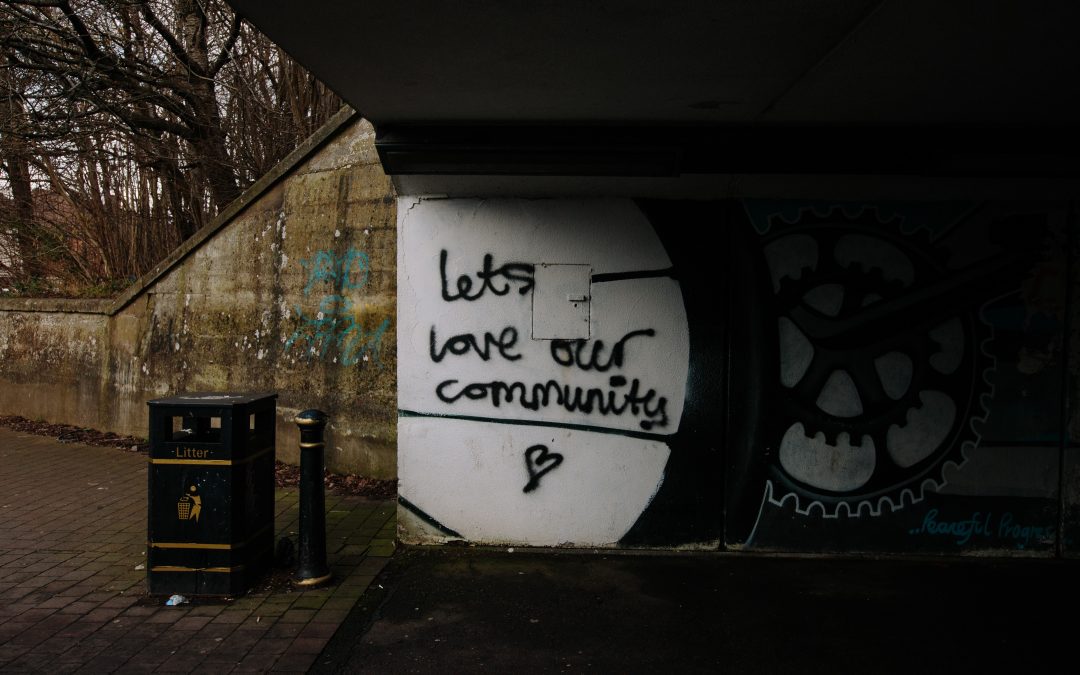
Bringing Literacy to Millions of Kids With Open Source
Today we are launching the [Global Learning XPRIZE](https://learning.xprize.org) complete with [Indigogo crowdfunding campaign](https://igg.me/at/learningxprize).
This is a $15 million competition in which **teams are challenged to create Open Source software that will teach a child to read, write, and perform arithmetic in 18 months without the aid of a teacher**. This is not designed to replace teachers but to instead provide an educational solution where little or none exists.
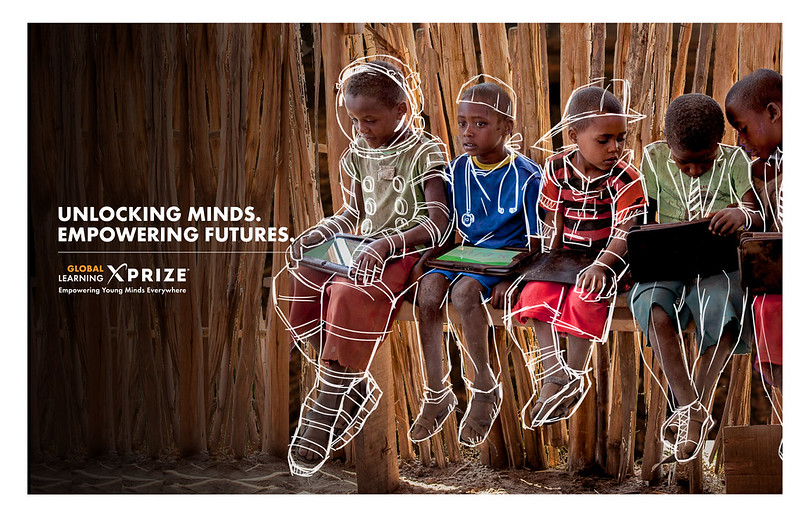
There are 57 million children aged 5 – 12 in the world today who have **no** access to education. There are 250 million children below basic literacy levels, even after several years of school. You may think the solution to this is to build more schools, but we would need an extra 1.6 million teachers by next year to provide universal primary education.
This is a *tragedy*.
This new XPRIZE is designed to help fix this.
*Every* child should have a right to the core ingredient that is literacy. It unlocks their potential and opens up opportunity. Just think of all the resources we depend on today for growth and education…the Internet, books, wikipedia, collaborative tools…without literacy all of these are inaccessible. It is time to change this. Too many suffer from a lack of literacy, and sadly girls bear much of the brunt of this too.
This prize is open to anyone to participate in. Professional developers, hobbyists, students, scientists, teachers…everyone is welcome to join in and compete. While the $15 million purse is attractive in itself, just think of the impact of potentially changing the lives of hundreds of millions of kids.
## Coopetition For a Great Cause
What really excites me about this new XPRIZE is that it is the first Open Source XPRIZE. **The winning team and the four runner-up teams will be expected to Open Source their entire code-base, assets, and material**. This will create a solid foundation of education technology that can live on…long past the conclusion of this XPRIZE.
That isn’t the only reason why this excites me though. The Open Source nature of this prize provides an incredible opportunity for *coopetition*; where teams can collaborate around common areas of interest and problem-solving, while keeping their secret sauce to themselves. The impact of this could be profound.
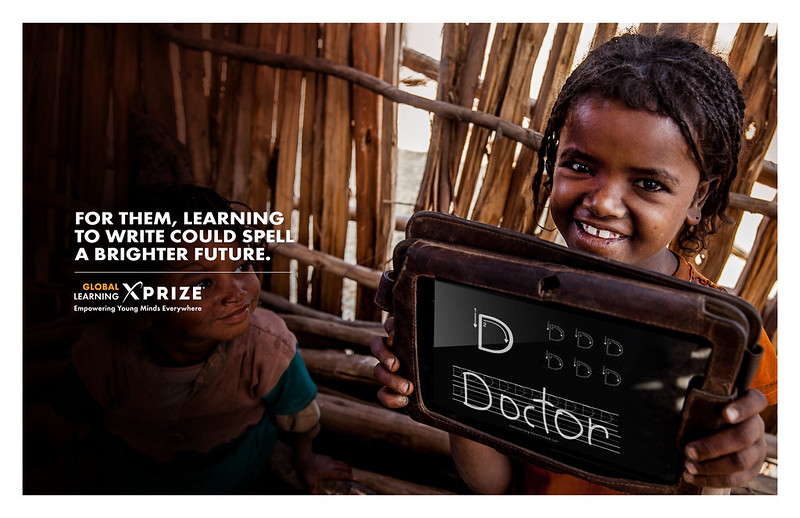
I will be working hard to build an environment in which we encourage this kind of collaboration. It makes no sense for 100 teams to all solve the same problems privately in their own silo. Let’s get everyone up and running in GitHub, collaborating around these common challenges, so all the teams benefit from that pooling of resources.
Let’s also open this up so everyone can help us be successful. Let’s invite designers, translators, testers, teachers, scientists, musicians, artists and more…everyone has something they can bring to solve one of our grandest challenges, and help create a more literate and peaceful world.
## Everyone Can Play a Part
As part of this new XPRIZE we are also launching a [crowdfunding campaign](https://igg.me/at/learningxprize) that is designed to raise additional resources so we can do even more as part of the prize. We have already funded the $15 million prize purse and some field-testing, but this crowdfunding campaign will provide the resources for us to do so much more.
This will help us broaden the field-testing in more countries, with more kids, to grow a global community around solving these grand challenges, build a collaborative environment for teams to work together on common problems, and optimize this new XPRIZE to be as successful as possible. Every penny contributed helps us to do more and ultimately squeeze the most value out of this important XPRIZE.
There are ten things you can do to help:
- Contribute! – a great place to start is to buy one of our awesome perks from the crowdfunding campaign. Find out more here.
- Join the Community – come and meet the new XPRIZE community at https://forum.xprize.org and share ideas, brainstorm, and collaborate around new projects.
- Refer Friends and Win Prizes – want to win an expenses-paid trip to our Visioneering event where we create new XPRIZEs while also helping spread the word? To find out more click here.
- Download the Street Team Kit – head over to our Get Involved page and download a free kit with avatars, banners, posters, presentations, FAQs and more. The page also includes videos for how to get started!
- Create and Share Digital Content – we are encouraging authors, developers, content-creators and more to create content that will spread the word about literacy, the Global Learning XPRIZE, and more!
-
Share and Tag Your Fave Children’s Book – which children’s books have been the most memorable for you? Share your favorite (and preferably post a picture of the cover), complete with a link to
https://igg.me/at/learningxprize and tag 5 friends to share theirs too! When using social media, be sure to use the #learningprize hashtag.
- Show Your Pride – go and download the Street Team Kit and use the images and avatars in there to change your profile picture and banner on your favorite social media networks (e.g. Twitter, Facebook, Google+).
- Create Your ‘Learning Moment’ Video – record a video and share on a video website (such as YouTube) about how learning has really impact your life. Give the video the title “Global Learning XPRIZE: My Learning Moment“. Be sure to share your video on social media too with the #learningprize hashtag!
- Put Posters up in Your Community – go and download the Street Team Kit, print the posters out and put them up in your local coffee shops, universities, colleges, schools, and elsewhere!
- Organize a Local Event – create a local event to share the Global Learning XPRIZE. Fortunately we have a video on our Get Involved page that explains how you can do this, and we have a presentation deck with notes ready for you to use!
I know a lot of people who read my blog are Open Source folks, and I believe this prize offers an incredible opportunity for us to come together to have a very real profound impact on the world. Come and [join the community](https://forum.xprize.org), support the [crowdfunding campaign](https://igg.me/at/learningxprize), and help us to all be successful in bringing literacy to millions.

Ubuntu for Smartwatches?
I [read an interesting article on OMG! Ubuntu!](https://www.omgubuntu.co.uk/2014/09/ubuntu-smartwatch-apple-iwatch) about whether Canonical will enter the wearables business, now the smartwatch industry is hotting up.
On one hand (pun intended), it makes sense. Ubuntu is all about convergence; a core platform from top to bottom that adjusts and expands across different form factors, with a core developer platform, and a focus on content.
On the other hand (pun still intended), the wearables market is another complex economy, that is heavily tethered, both technically and strategically, to existing markets and devices. If we think success in the phone market is complex, success in the burgeoning wearables market is going to be just as complex too.
Now, to be clear, I have no idea whether Canonical is planning on entering the wearables market or not. It wouldn’t surprise me if this is a market of interest though as the investment in Ubuntu over the last few years has been in building a platform that could ultimately scale. It is logical to think this could map to a smartwatch as “another form factor”.
So, if technically it is doable, Canonical should do it, right?
No.
I want to see my friends and former colleagues at Canonical succeed, and this needs focus.
Great companies focus on doing a small set of things and doing them well. Spiraling off in a hundred different directions means dividing teams, dividing focus, and limiting opportunities. To use a tired saying…being a “jack of all trades and master of none”.
While all companies can be tempted in this direction, I am happy that on the client side of Canonical, the focus has been firmly placed on phone. TV has taken a back seat, tablet has taken a back seat. The focus has been on building a featureful, high-quality platform that is focused on phone, and bringing that product to market.
I would hate to think that Canonical would get distracted internally by chasing the smartwatch market while it is young. I believe it would do little but direct resources away from the major push now, which is phone.
If there is something we can learn from Apple here is that it isn’t important to be first. It is important to be *the best*. Apple rarely ships the first innovation, but they consistently knock it out of the park by building brilliant products that become best in class.
So, I have no doubt that the exciting new convergent future of Ubuntu could run on a watch, but lets keep our heads down and get the phone out there and rocking, and the wearables and other form factors can come later.
